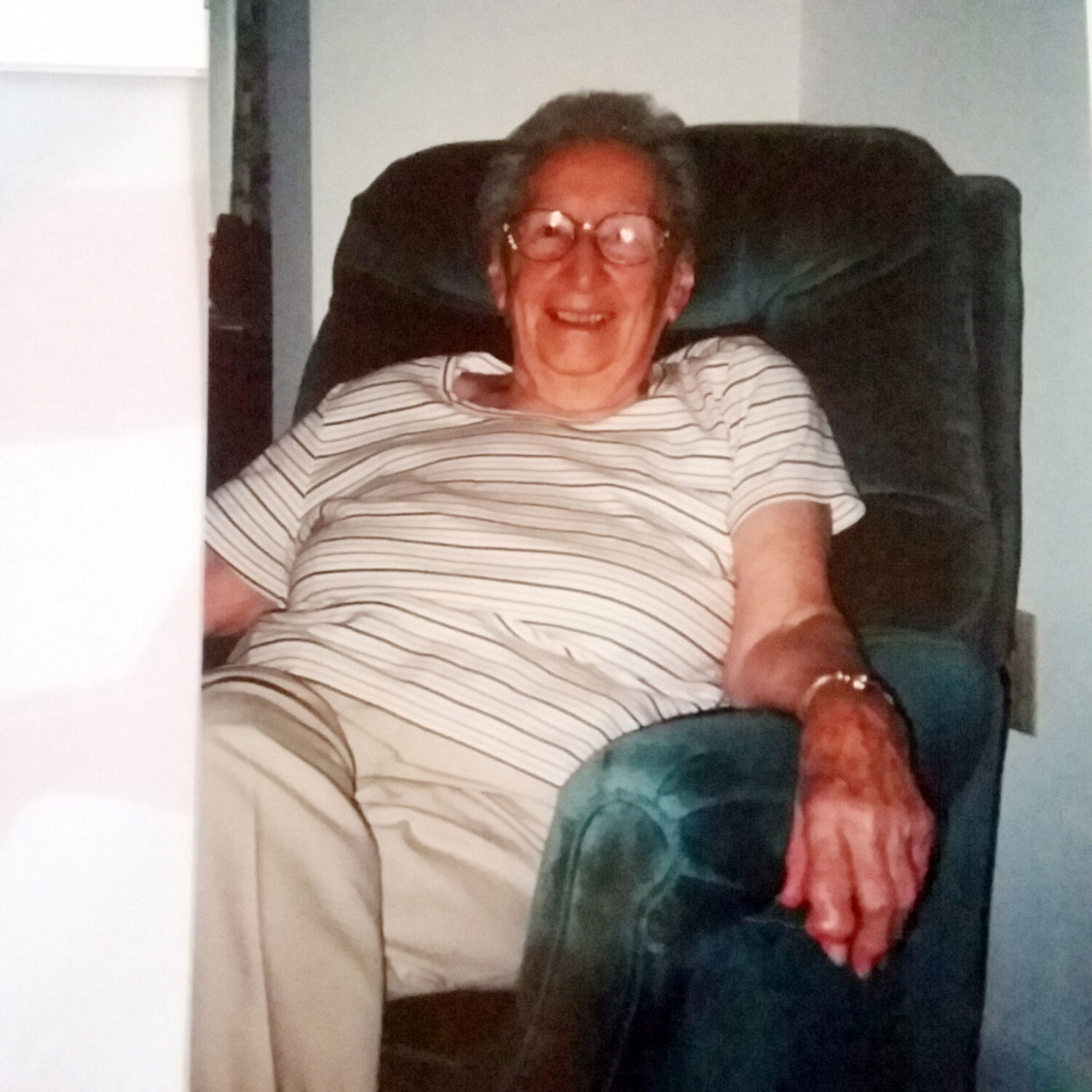Peg Goes Into the Army
by Priscilla Rall

Margaret Virginia “Peg” Franklin has deep roots in Frederick County. She was born on her family’s farm, Thornbrook, in 1915, to John Nathaniel and Margaret Fox Franklin. The home is on the National Register with its fantastic example of Italianate architecture. At one time, it was owned by the well-known poet and professor at Mount St. Mary’s College, George Henry Miles.
Peg’s grandfather bought the farm before she was born. The large home was also used as a boarding house for vacationers from D.C., Baltimore, and Virginia. Before buying Thornbrook, Peg’s grandfather, Jeremiah Fox, ran a livery service in Thurmont, picking up riders from the Thurmont train station and taking them to their destination. Later, he worked as the mail carrier in Thurmont, driving his horse and wagon from the town to Frederick to get the mail. He often would take orders from Thurmont residents for items to buy for them in Frederick.
Peg’s father was a farmer, and their family consisted of four girls and three boys. They all worked on the farm, raising milk cows, hogs, sheep, and chickens. They took the cream to the creamery at Motters Station, located across from the store there. The family also grew factory crops like tomatoes and beans. These, they took to the cannery in Thurmont by the train tracks on Altamont Avenue. They grew grain and took it to the mill north of Emmitsburg to grind into flour.
All the family helped on the farm. Peg remembered riding on the binder, but the girls never milked—that was a job for the boys. They farmed with horses, and her grandfather never did learn to drive a car! The farm did not even have electricity until 1945. First, they had a windmill to pump water to the house and later got a gasoline engine to pump the water from the cistern.
The Great Depression was tough on all Americans, but at least those on farms had enough to eat. Like so many, her grandfather lost all of his savings when the Thurmont bank failed. Her mother fashioned clothes from feed sacks and also made them into curtains. She cooked for her family and the boarders on a wood-burning cookstove located on the porch during the summer.
Peg and her siblings attended the old Emmitsburg Elementary School, now part of the fire hall. Then they attended the old Emmitsburg High School, now the Emmitsburg Community Center. All the Franklin siblings graduated from high school. From 1931 to 1935, Peg attended St. Joseph’s College, majoring in home economics. She still lived at home, one of the so-called “day hops,” walking four miles most days. The father of her good friend, Elizabeth Troxell Newman, often took them in his sleigh when the snow was deep. Later, her sister, Elizabeth, taught at the one-room school at Appolds, between Motters Station and Rocky Ridge.
The next year, Peg interned in a hospital in Philadelphia, after which she began working at a Catholic hospital in Yonkers, New York, run by the Sisters of Charity. She was in charge of the Special Diet Department. After America went to war, she traveled to Bridgeport, Connecticut, where she worked for General Electric, not as a Rosie the Riveter, but as Rosie the Radio Tester! She tested radios to be used in tanks, while two of her brothers worked for Glen L. Martin in war production work. Her other brother joined the Army. Even her mother contributed to the war effort. The Army needed human hair to be used in precision instruments. So, she sacrificed her beautiful, long blond hair for the war effort.
In the spring of 1944, Peg joined the Army. After passing the physical in Boston, she went through basic training in Atlantic City; 2nd Lt. Franklin became part of the Army’s Medical Department and was assigned to Mason General Hospital on Long Island. It was the processing center for all military personnel arriving from Europe. The convoys would arrive, usually at night, often carrying more than 1,000 GIs. First, they had to be fed; the hospital was staffed with some Italian POWs to help. There were even Army nurses who had been POWs in the Philippines. They were given foods like ice cream, milk, and other delicacies missing from the front lines and much appreciated. Mason General Hospital was used mostly for those with emotional problems. The most severe cases were put in “closed wards.” After the war, the Army closed Mason, and Peg transferred to Letterman General Hospital at the Presidio in San Francisco. She worked there for seven months before Captain Franklin left the service in June 1947.
A friend from the service suggested that she join him at a resort in the Catskills, run by Macy’s Company for its employees. In those years, many large companies had resorts as a perk for those that worked for them. Unfortunately, it was closed after two years due to a dispute with its workers. It was at this time that Peg’s mother, brother, and father became ill, and she returned home to care for them. After her brother and father died, she continued to care for her mother for 15 years until her death.
Finding herself unemployed after so many years, Peg began working at St. Joseph’s Provincial House. After that institution closed, she worked at the Marian Center until she retired in 1985. Peg was a life member of Emmitsburg Presbyterian Church, where she sang in the choir. She was also a founding member of the Emmitsburg Community Chorus. After a long and productive life, Captain Franklin passed away in 2009. Her family served our country in many ways, and we in Frederick County are proud to call Captain Franklin one of our own.
If you are a Veteran or know a Veteran who is willing to tell his or her story, contact the Frederick County Veterans History Project at priscillarall@gmail.com.

